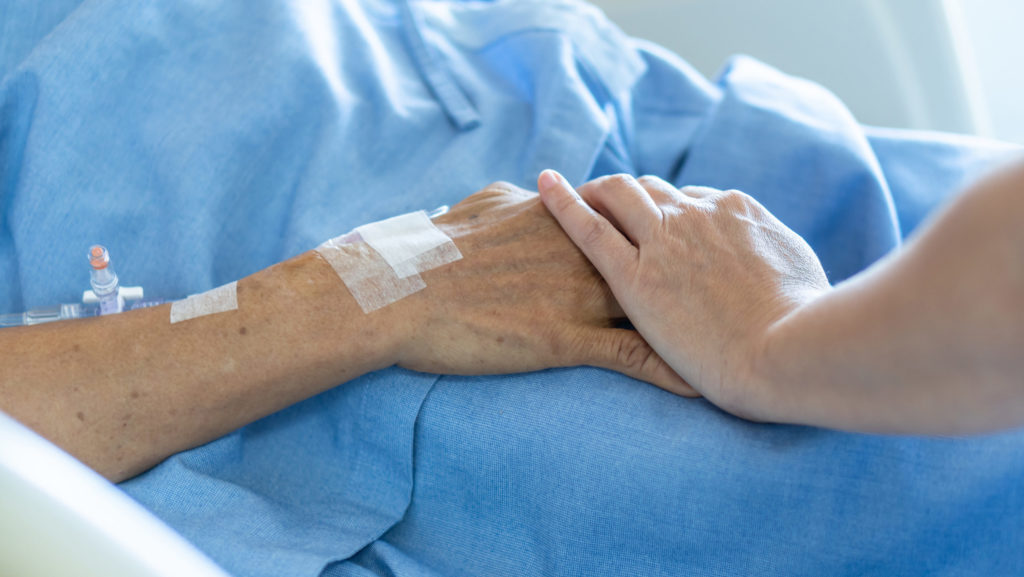Those who are facing death should be given adequate palliative care as opposed to being assisted in suicide, according to the Catholic Medical Association (CMA) of Britain.
The Terminally Ill Adults (End of Life) Bill is making its way through the Committee Stage in parliament, the sponsor Member of Parliament (MP), Kim Leadbeater, has asked for a series of amendments concerning the role of doctors and the reporting of assisted suicides.
On Sunday, Catholic churches in England and Wales read a statement from Cardinal Vincent Nichols in which he noted the “deeply flawed process undergone” in pushing the legislation.
He said the Bill will “fundamentally change” many of the key relationships in the way of life in Britain, “within the family, between doctor and patient, within the health service.”
This week, the CMA issued a statement affirming Catholic Moral Teaching holds that it is always wrong to make a direct attack on innocent human life.
“Assisted suicide constitutes such an attack and can therefore never be condoned. Also, in keeping with the natural moral law, the fundamental right to life is a core element of the United Nations Charter in its Universal Declaration of Human Rights (1948). This right cannot be conferred but is inherent by virtue of our membership of the human family. Without the right to life there can be no logical duty to respect any other right,” the statement said.
The CMA also said the term “assisted dying” is used in a euphemistic way in the proposed Bill, since what it actually proposes is assisted suicide.
“Although suicide itself was decriminalised in 1961 because it was recognised that those attempting to take their own lives generally suffer with serious mental health difficulties and depression, assisted suicide remains a crime which may attract a long prison sentence. This reflects the societal view that suicide is not a thing to be desired and government does actually allocate considerable resources to its prevention,” the statement said.
The Leadbeater Bill requires that steps be taken to establish that a person requesting assisted suicide has a clear, settled and informed wish to end their own life. The decision must have been made voluntarily without coercion or pressure from any other person.
“However, as senior lawyers, judges and doctors have observed, it will prove difficult or impossible to establish that these provisions have been strictly observed. It is clear from experience in countries which have legalised assisted suicide that abuse of the regulations is not at all uncommon. Against this background, patients would understandably begin to fear for their safety within health services. Scrutiny of this bill has been inadequate and biased and has left it dangerously flawed,” the CMA statement says.
“For Christians and non-Christians alike, the ancient, fundamental principle of absolute respect for human life has always been officially upheld. In the Hippocratic Oath which dates to several hundred years before the time of Christ; it states: ‘I will give no deadly drug to any, nor will I counsel such’,” it continues.
The CMA says legalised assisted suicide would overturn the ethical basis of medicine and the other healthcare professions by requiring them to take the lives of their patients.
“The true and ethical meaning of assisted dying is encompassed by palliative care medicine and nursing,” the statement says.
“Unfortunately, palliative care is extremely poorly resourced by the government and the greater part of funding is from charitable donations. The CMA believes that adequate medical and nursing care during a person’s final illness is at least as important as at any other stage of life,” the statement continues.
The CMA claims “it may prove difficult or impossible” to maintain a compassionate approach with assisted suicide being legalized.
“Evidence considered by the bill committee, largely ignored, shows the detrimental effect that assisted suicide legislation can have on the provision of palliative care. Hospices have expressed serious concern about this legislation and the consequent uncertainty it creates regarding their future operation,” the statement says.
“The CMA abhors and rejects the proposed legislation in Kim Leadbeater’s Bill and calls instead for major investment in palliative care services such that they become available to all who need them in the UK, 24 hours a day,” the Catholic medical staff members conclude.

